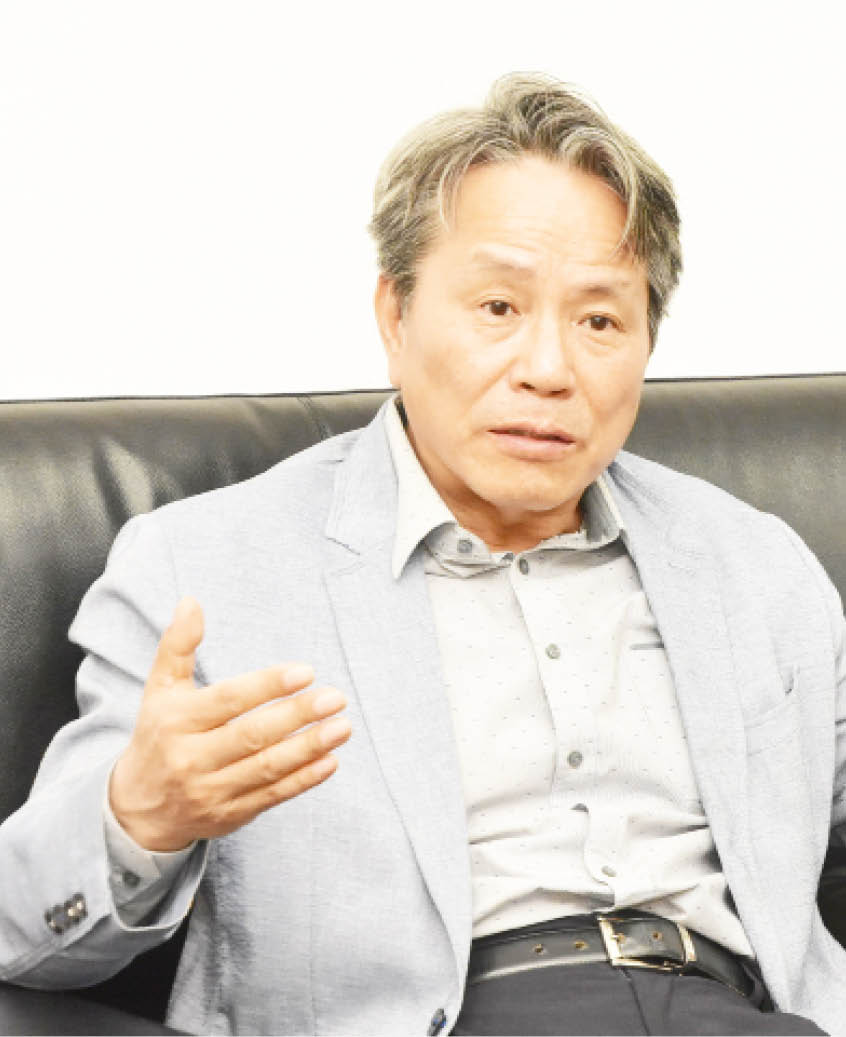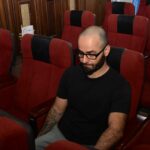In this interview with our diplomatic correspondent Joshua Odeyemi, the outgoing South Korean Ambassador to Nigeria, Kim Young-Chae, said Nigeria has no reason to import foodstuff. He also spoke on his country’s relationship with Nigeria, the population explosion in the West African country and the good side of ‘Japa’, amongst others. Excerpts
What inspired you to become an ambassador, and how did you get started in your career?
I was born in the countryside in Korea, my parents were farmers. When I was in elementary school, I once saw a calendar and in the calendar, I saw a palm tree and an emerald sea. It was very beautiful and I thought that was paradise. From that time, I wanted to go outside Korea and then when I entered the university, I wanted to study in a foreign country, but my parents could not support me financially so I needed to have a scholarship to study. Luckily, at the time, my foreign ministry gave us an opportunity to study up to two years in a foreign country for language studies. So, I saw that information and then I decided to become a diplomat.
First, I had a chance to study in a foreign country and then I can travel to many countries. I was lucky, I passed the Foreign Service exam. I studied at the Pennsylvania State University in America, and at that time, I couldn’t speak English and couldn’t understand. I just read and write. So, in terms of spoken English, I was at the basic level. I had to listen to a lot of lectures and watch CNN. Sometimes, I watch CNN for 10 hours straight. Six months to one year later, I began to understand in class. I pursued a master’s degree in International Relations later.
After that, I lived in San Francisco and Manila, Philippines and Tana Netherlands and then Singapore, Pretoria in South Africa, Libya and Jakarta in Indonesia. This is my final foreign posting. So, I think I have quite an extensive experience. I have visited North America and Asia, the Middle East, Europe and Africa. It is quite a good experience for me. And then I think I am sort of a specialist in African Affairs.
Having served in many countries, how would you describe your experience as the South Korean ambassador to Nigeria in the last three years?
It’s quite rewarding. You may not understand the life of ambassadors but for ambassadors to serve in a big country is very important. Nigeria is a big country and of course, we have challenges, but it’s been a rewarding experience. We’ve had to handle a lot of issues – political, economic and cultural issues. Our job is quite diverse. But it is good for me to learn more about Nigeria as well as Africa.
What are the things you learned about Nigeria?
Let me tell you a little bit about Korea. And then we will talk about Nigeria. First, let’s discuss about poverty population. In Korea, we do not produce a lot of babies. Young people do not marry. Even if they are married, they do not produce babies. Even if they produce babies, they produce only one. So, we have a very serious problem now in terms of population. The opposite is happening in Nigeria. You are producing too many babies and it will hurt your economy. When I look at the situation of my country and the situation of Nigeria, I think there should be some balance in terms of population growth. I think it is very crucial for the country’s existence. All the problems in Nigeria, currently, is related to the population. In my country on the other hand, according to some projections maybe 50 years later, the population will be half so our people will reduce. Maybe in 200 years time our people will disappear from the planet. So, it’s a very serious problem.
At the same time, Nigeria is in a big problem, there are too many babies. So, we have to get a balance. I am the youngest in my family. I have two brothers and two sisters. Before the 1960s, Korea also produced a lot of babies like five, six, seven and sometimes eight. But from the 1960s, Korea began to introduce all sorts of family planning and then we began to have only two children per family. At the same time, Korea began to have economic development. A lot of people migrated from the countryside to cities, to factories. So, we succeeded in that regard in terms of population planning. At the same time, we also succeeded in economic development. Up to the 1970s, 80s, and 1990s, the Korean economy began to rise, thanks to manufacturing, agricultural transformation etc. So, from 2000 to 2010, it was quite okay. But from 2010, Korea’s growth rate dropped rapidly. It’s currently 0.7percent. So, we see dramatic changes in terms of culture among young people. Young people do not marry. Even if they are married, they marry very late.
Are you advising Nigeria to copy the Korean model of economic development?
What I want to tell Nigerians is that Korea’s economic development model is good for Nigeria. So, please study the Korean economic development model and then make Nigeria prosperous. What I observed is that each year, Nigeria adds 10 million people. So, every five years, you add 50 million people and then you have to feed them, you have to educate them, you have to train them and then you have to give them jobs. But your economy cannot do that. That’s why we’re having all sorts of problems in Nigeria. I was told in the 1970s or 80s, Nigeria was one of the richest countries in Africa and then the people from Ghana came here but now the reverse is the case. Nigerians go to Ghana to find jobs because they cannot find jobs here.
I thought population was the main source of the Nigerian problem, but Nigeria has three big problems in my personal view. The first is rapid population growth because your economy cannot keep growing compared with the population growth. I do not want your population to be like that of Korea but put some level of control. The second problem is that Nigeria doesn’t have manufacturing companies, you import everything. You even import rice, chicken, beef, even basic items. So, you cannot find jobs for the population. You have to study how Korea developed its manufacturing sector. Without investing in the manufacturing sector, you can’t build skilled labour. Thirdly, food. You have to be self-sufficient in your food production. You have more than 200 million people. It’s very dangerous to rely on foreign food. In spite of your land, abundant water and fertile soil, you are importing a lot of rice. You have to ask questions.
What is your suggestion to the government concerning agricultural development in Nigeria?
My suggestion regarding agriculture is that you have to be self-sufficient. In order to achieve that, you will have to help farmers to be more efficient. A lot of things need to be done. You need to bring in new varieties of rice, new breed of cow to produce more milk and tender meat. You need to have new breed of pork, vegetables, cucumber, tomato, strawberry, watermelon, and all sorts of things you need. Even if I leave, my successor can continue to pursue some agricultural cooperation between Nigeria and Korea. Regarding agricultural cooperation from our point of view, we are not for money because we know poverty. Korean people have a genuine aspiration to help people in the farming sector.
Nigerian society is not helping farmers in general. Farmers do not receive any subsidy from the society. If we look at the economic point of view, it’s like farmers are giving subsidies to people in cities. In Korea, it is the reverse. The people in the cities provide subsidies for farmers. Look at the price, so cheap. So, the society and government need to provide some support to farmers in order to jump-start.
They don’t know new technology, how to market a product, they do not have fertilizer, and they don’t have machines. All sorts of problems are there, and in order to solve the problem, the whole society needs to help farmers so that they are more productive and if they are productive, Nigeria will be self-sufficient in food consumption.
How have you been able to use your office to attract manufacturing companies from Korea to Nigeria?
I actually tried to bring some manufacturing companies to Nigeria but they are hesitant. You know the reason? Insecurity. It is a huge problem; people cannot move freely. It is killing the economy. People are feeling insecure even though they are in Abuja. It is killing the economy and prohibiting investment by Nigerians and foreigners. Without investment, you cannot have factories and you cannot have enough jobs. Manufacturing is key for job creation. You do not need very high technology, some middle-level technologies are okay. Your land is huge, your labour costs are not high. So, you can compete internationally.
You mentioned high population as a major problem facing Nigeria. Looking at how sensitive this issue is in Nigeria, especially in the North, do you think birth control is an option?
Population is a very sensitive issue religiously and politically. When we introduced family planning in Korea, we had some resistance. There was a time in Korea when we had men higher than women in terms of social status but now, men and women are equal in every legal right.
Writers and movie makers are crucial in terms of influencing people’s thinking. At the same time, what I am suggesting is not to reduce the population because currently, in Korea, we have a huge problem of low population. So, I’m suggesting population management. Your living standard is getting lower and this means everybody will suffer.
At the same time, a population can be a great source of happiness and power. Population is also a source of economic growth. But you have to educate, you have to train, you have to create the jobs. Without that, population would be a dangerous thing. So, if you set your house in order, then you can have more people. In Korea, we need more people now considering our situation.
How do you advise Nigeria to deal with its security challenges since it seems every approach used has failed?
The federal government in Nigeria cannot see every village, every mountain, etc. So, my suggestion is to give security related power to the local and state governments and let them be more responsible. Then what are the governors doing about security in their state? I want to ask a simple question: why do we need governors in the state if they cannot handle securities and economic issues, what is the use of having governors? If governors don’t have powers with regard to security issues, then they are actually not as powerful as we are made to believe.
It is a contradiction for me. The governors are much more powerful than ministers and senators, right? Why can’t they handle security in their respective states? When I ask governors about security in their states, they tell me that they don’t have any powers regarding security. So, we need to look at that and let each governor be responsible for security in their states. I think this may be a solution to insecurity. Nigeria needs to give more power to governors in terms of security-related matters and let them be more responsible.
Then, we need to educate the people. I looked at the last election. What is the basis for people to vote? We have to ask the media. You have a huge responsibility in that regard. Every day, I see discussions about where the candidates come from, the ethnic groups they belong to or their religion but you are not asking about their performance. The media needs to praise those governors performing. We need to elect those people. I think the only people who can do this are the media.
Also, there should be punishment for bad behaviour. There was a prison break in 2022 but nobody took responsibility. And we do not know how people are promoted. It should be based on our performance in a way. I understand the Nigerian situation, a very diverse country in many ways, so I understand that a quota system may be necessary for Nigerian unity and harmony. However, in some areas, we need to see government officials and politicians through their performances. Let’s say a prison break takes place in Korea, I think many people will be fired.
How has your country helped Nigeria in fighting insecurity?
My country is one of the safest countries in the world. You can walk around any place at 2am, 3am. If you commit a crime, you will be punished. So, crime and punishment are related. If I commit a crime and then I’m okay, then I’ll continue to commit crime. Human nature has been the same for years. Nigerians are not that different. Basically, Europeans, Asians, and Africans are not that different. We have the same desire. We have the same aspiration; we just react to the environment differently. Many Nigerians are successful in America. Why not here? Because of the difference in environment.
Let me go back to our embassy activities. Politically, we want to promote more understanding of each other. We also have our own huge problem; we have divided the country – North and South Korea. So, we have a challenge just as Nigeria has an insecurity challenge. We have the challenge of our division. In the area of economy, we want to increase investment and more trade in the cultural section.
In the defense area, we proposed to the Nigerian government some defensive cooperation but they are still under discussion with the Nigerian Minister of Defense. It’s a sensitive issue. Then we are going to provide vessels to the Nigerian Navy. Also, we have some training programmes for Nigerian military officers in Korea. We also sell some military trucks and other defence items to Nigeria. These are more commercial.
In 2021, the trade volume between South Korea and Nigeria stood around $2bn. What is the current trade volume between the two countries?
It’s more or less similar. Last year, we saw some drops due to our reduced imports Maybe due to the Ukraine crisis, Nigerian oil and gas are diverted more to Europe than Korea. And we have great potential in terms of trade and investment.
How many Nigerians are in Korea?
We have around 3000 Nigerians in Korea. It is not a huge number, and I want to see more Nigerians coming to Korea for study or job, etc. You know we can be fantastic partners. Just look at the population; we don’t have people and you have more people. So, there are possibilities in the long term. We need to tap into more migration, more immigration.
What are your thoughts about the massive relocation of young Nigerians abroad?
Educate your people very well. It’s good for Korea. Sometimes in your newspaper, you say brain drain. I think it’s a blessing for the nation. Even if you are suffering now, due to brain drain, in the long term, you’d have more people outside Nigeria. Look at China, look at India. There are a lot of Indians in West Africa, East Africa, everywhere. They are helping India in the long term. So, you have to see Nigeria’s diaspora as one of your great assets in the long term.
It’s good for you, it’s good for Korea, to educate your people very well.
What are your final words, sir?
I want to thank the Nigerian government and people for giving me the chance during the last three years to eat red meat. I’m really grateful. I received a lot of help from many Nigerians and I will never forget them. And even if I return to Korea, I want to continue looking at Nigeria and pray for the betterment of Nigerians.
I have genuine hope that Nigeria will become more peaceful, more secure, and more stable, and people here in Nigeria who want to work will be given jobs. I have huge respect for Nigeria. Why? Because despite all sorts of diversity, you have remained one nation. My last recommendation is that whatever happens, keep Nigeria as one nation.
It should be the number one priority for Nigeria. Secondly, make the country peaceful, so that people can eat three meals per day. Nigeria is a fantastic place. You can make it!




